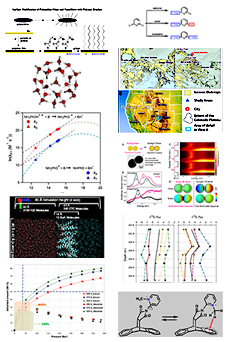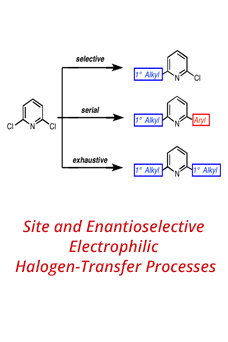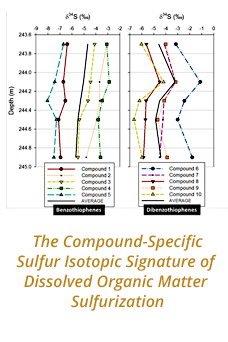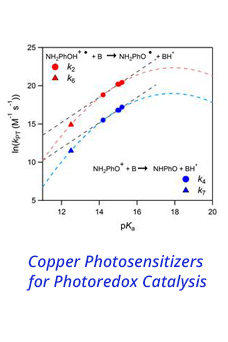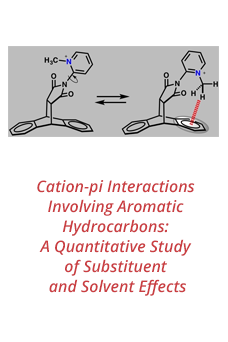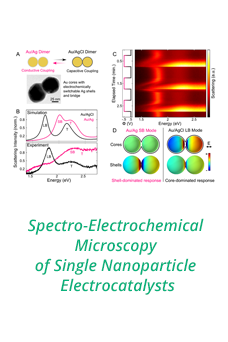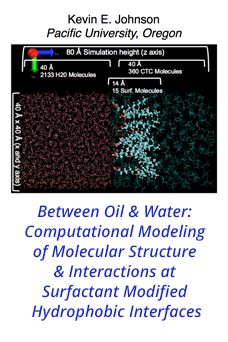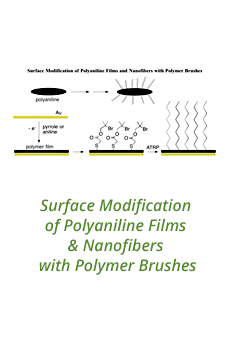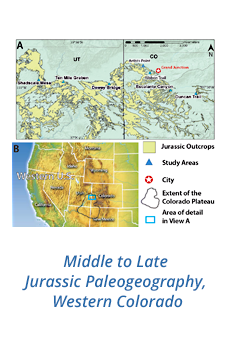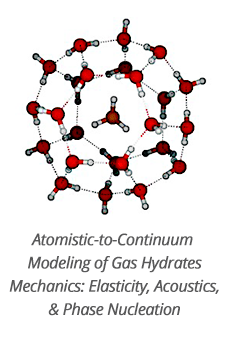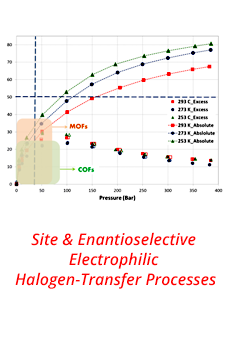Dr. Matthew F. Bush
 Department of Chemistry
Department of Chemistry
University of Washington
Fundamental Interactions Between Petroleum Ions and Gases
Dr. Matthew F. Bush is an Assistant Professor of Chemistry at the University of Washington. His ACS Petroleum Research Fund grant has supported research utilizing ion mobility spectrometry for characterizing the mixtures of molecules present in petroleum. This gas-phase technique separates ions based on collision cross-section, which is caused by long range interactions between the ions and neutral gas molecules. Dr. Bush states, “our objective was to understand how differences in long-range ion/neutral [gas molecule] interactions could be used to differentiate petroleum ions that have the same elemental composition.” Dr. Bush’s experiments were performed at ambient temperature and low pressure, differentiating his work from similar research in the field, which is typically done using high temperatures and high pressures of gas. This change was predicted to result in better differentiation between ions. The research particularly explored the different drift gases that can be used in ion mobility spectrometry, and how these gasses can increase selectivity of separations (Figure 1).
The research found that previously existing theoretical methods for calculating the collision cross sections did not follow experimentally observed trends. Dr. Bush says that “one of the most exciting outcomes of this research was the development of equations for prediction the peak capacity of ion mobility separations based on the properties of analytes and the instrument.” In the future, these equations developed will be useful for designing new instrumentation. The research also unveiled interesting trends, such as the correlation between the mobility of nitrous oxide and carbon dioxide gas. This result is potentially very useful to scientists utilizing the ion mobility spectroscopy, and would allow for experimentalists to utilize carbon dioxide as a cheaper and safer alternative to nitrous oxide.
Dr. Bush states that “support from the PRF help launch new lines of inquiry within my lab, which will continue beyond the grant-funded period.” He plans to apply the strategies utilized in this research to other analytes, and to use the experimental data to develop new theoretical methods. He also believes that his research has the potential to impact the petroleum field, as ion mobility spectroscopy used in tandem with high-performance mass spectrometry can differentiate between structural isomers, which are not possible using only mass spectrometry.
Dr. Bush received his Bachelor’s from Carleton College and his Ph.D. in bioanalytical and biophysical chemistry from University of California, Berkeley. His post-doctoral studies at University of Oxford and University of Cambridge focused on using gas-phase analytical techniques. Dr. Bush has received a number of awards recognizing his excellence as an analytical chemist, most recently being the 2017 Arthur F. Findeis Award for Achievements by a Young Analytical Chemist.
Grant #54437-DNI6: Read Bush's Annual Report
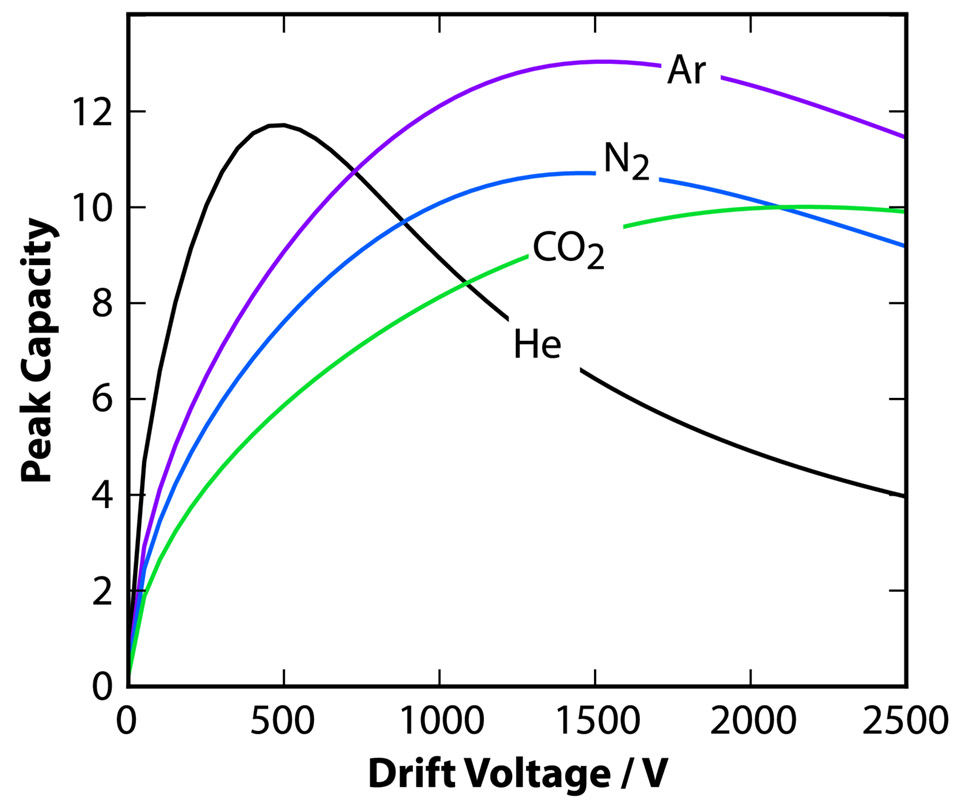 Figure 1
Figure 1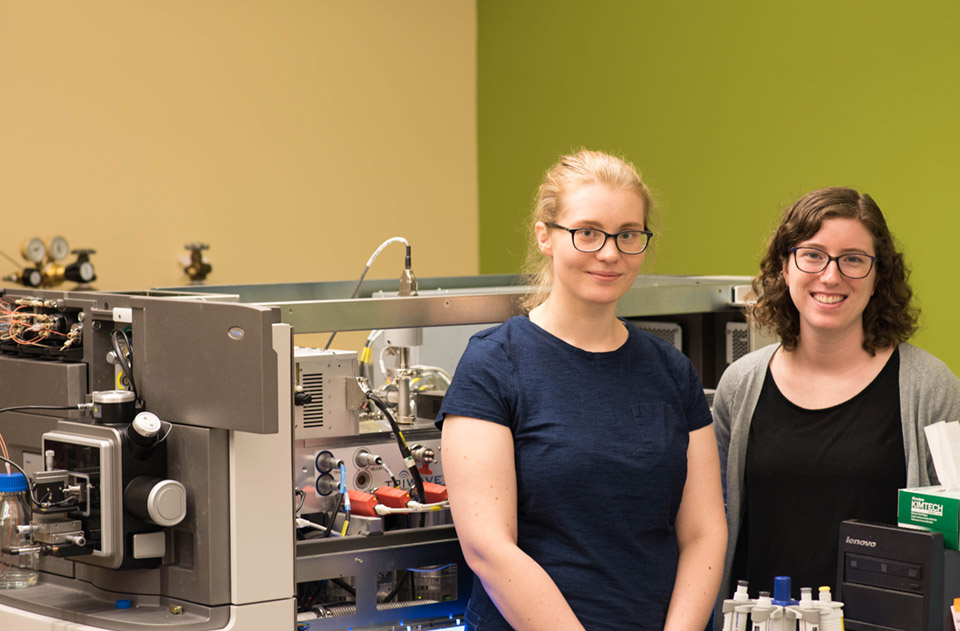 Students in the lab
Students in the lab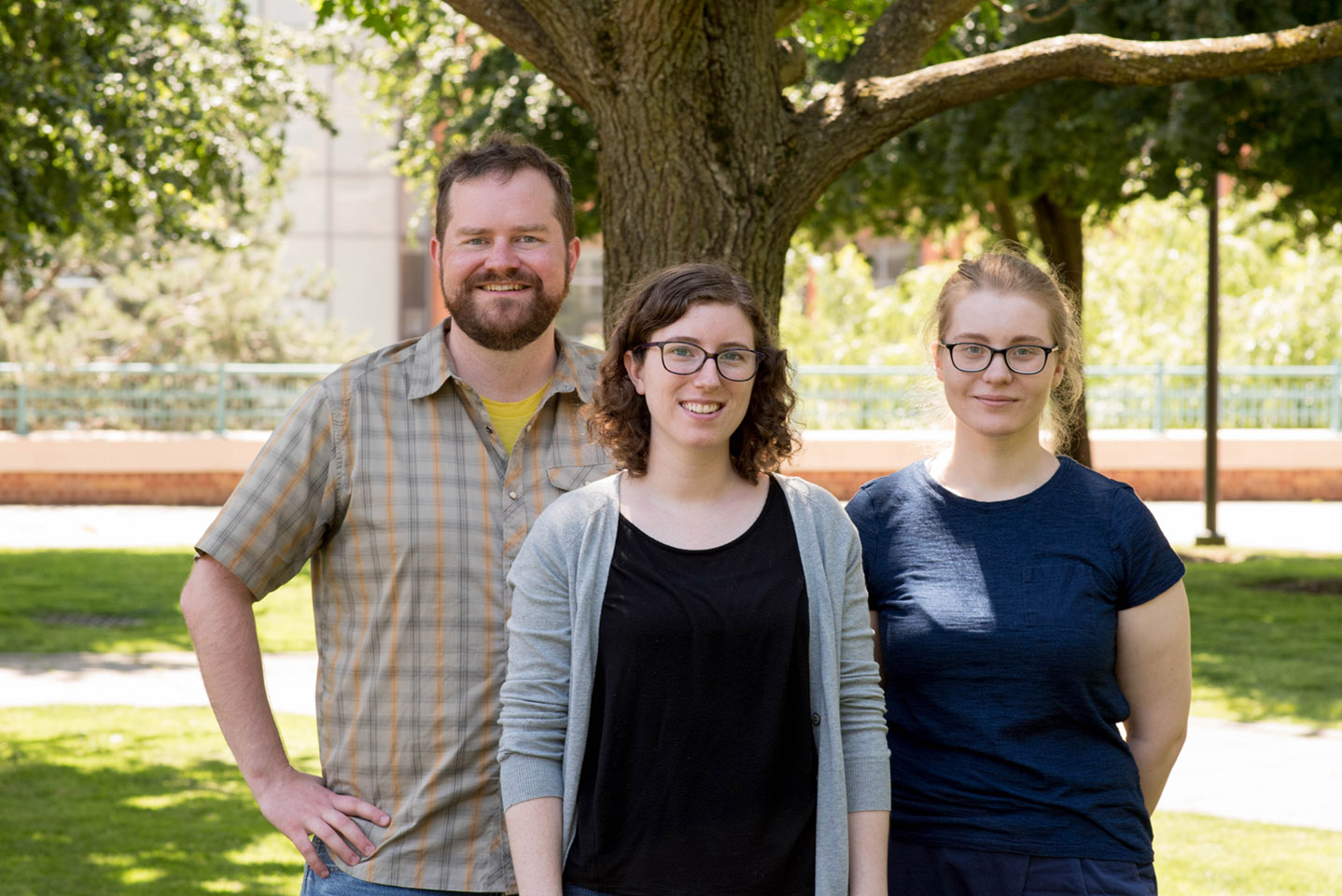 Matt Bush and Students
Matt Bush and Students
